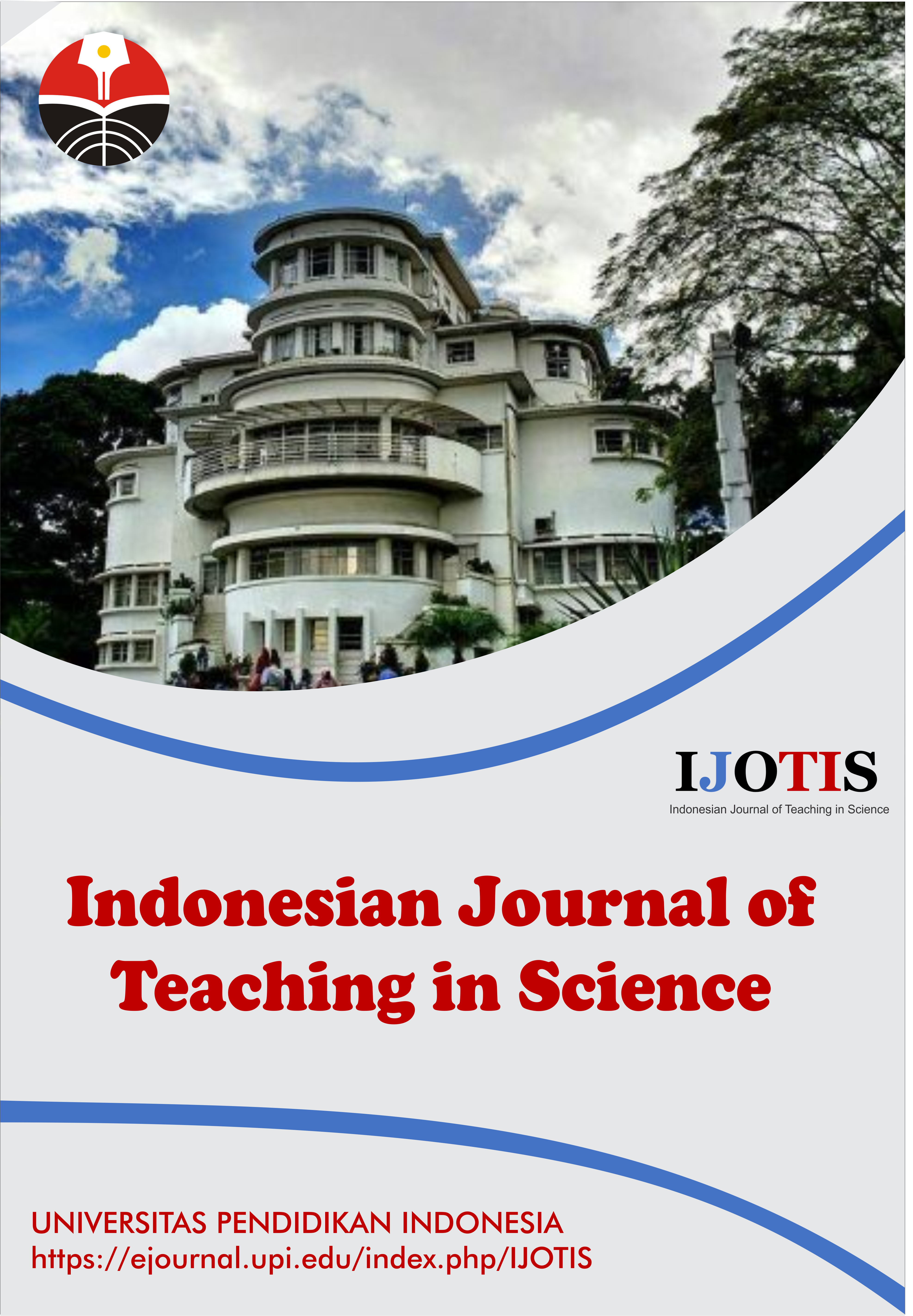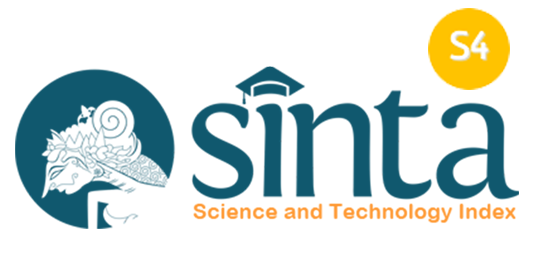Feasibility Analysis of the Development of STEM-Based Physics E-Book with Self-Regulated Learning on Global Warming Topics
Abstract
Keywords
Full Text:
PDFReferences
Amiruddin, M. Z. B. (2022). Eksplorasi konsep fisika pada permainan lempar bola secara vertikal dengan bantuan aplikasi tracker. Jurnal Pendidikan Dan Pembelajaran Sains Indonesia (JPPSI), 5(1), 60-67.
Gunawan, P. I. Y., and Amaludin, A. (2021). Pemanfaatan teknologi pembelajaran dalam jaringan di masa pandemi covid-19. Jurnal Madaniyah, 11(2), 133–150.
Hamad, S., Tairab, H., Wardat, Y., Rabbani, L., AlArabi, K., Yousif, M., and Stoica, G. (2022). Understanding science teachers’ implementations of integrated STEM: Teacher perceptions and practice. Sustainability, 14(6), 1-19.
Heryani, T. P., Suwarma, I. R., and Chandra, D. T. (2023). Development of STEM-based physics module with self-regulated learning to train students critical thinking skills. Jurnal Penelitian Pendidikan IPA, 9(6), 4245-4252.
Ichsan, I., Suharyat, Y., Santosa, T. A., and Satria, E. (2023). The effectiveness of STEM-based learning in teaching 21 st century skills in generation Z student in science learning: A meta-analysis. Jurnal Penelitian Pendidikan IPA, 9(1), 150-166.
Kilty, T. J., and Burrows, A. C. (2022). Integrated STEM and partnerships: What to do for more effective teams in informal settings. Education Sciences, 12(1), 1-19.
Lestari, D. A. B., Astuti, B., and Darsono, T. (2018). Implementasi LKS dengan pendekatan stem (science, technology, engineering, and mathematics) untuk meningkatkan kemampuan berpikir kritis siswa. Jurnal Pendidikan Fisika Dan Teknologi, 4(2), 202–207.
Lock, R. M., Hazari, Z., and Potvin, G. (2019). Impact of out-of-class science and engineering activities on physics identity and career intentions. Physical Review Physics Education Research, 15(2), 1-11.
Nazifah, N., and Asrizal, A. (2022). Development of STEM integrated physics e-modules to improve 21st century skills of students. Jurnal Penelitian Pendidikan IPA, 8(4), 1783-1789.
Ndoa, Y. A. A. (2022). Physics e-book based on STEM integrated modelling instruction in circular motion. Journal of Education Technology, 6(4), 711-721.
Novita, R. R. (2023). Physics e-book with augmented reality to improve students’ interest in physics. JPI (Jurnal Pendidikan Indonesia), 12(1), 145-154.
Novitra, F. (2021). Development of online-based inquiry learning model to improve 21st-century skills of physics students in senior high school. Eurasia Journal of Mathematics, Science and Technology Education, 17(9), 1-20.
Nugraha, T. S. (2022). Kurikulum merdeka untuk pemulihan krisis pembelajaran. Inovasi Kurikulum, 19(2), 251-262.
Ramli, R. (2023). Development of physics interactive multimedia based on STEM approach class XI SMA. Jurnal Penelitian Pendidikan IPA, 9(5), 3899-3904.
Samsudin, M. A., Jamali, S. M., Md Zain, A. N., and Ale Ebrahim, N. (2020). The effect of STEM project based learning on self-efficacy among high-school physics students. Journal of Turkish Science Education, 16(1), 94-108.
Sulaeman, N., Efwinda, S., and Putra, P. D. A. (2022). Teacher readiness in STEM education: Voices of Indonesian physics teachers. Journal of Technology and Science Education, 12(1), 68-82.
Wati, W. W., and Syafriani, S. (2023). Validity of physics e-modules based on an inquiry model integrated with the science, environment, technology, and society approach to 21st century skills. JIPI (Jurnal IPA and Pembelajaran IPA), 7(2), 133-144.
Yulkifli, Y., Yohandri, Y., and Azis, H. (2022). Development of physics e-module based on integrated project-based learning model with Ethno-STEM approach on smartphones for senior high school students. Momentum: Physics Education Journal, 6(1), 93-103.
Zimmerman, B. J. (1989). A social cognitive view of self-regulated academic learning. Journal of Educational Psychology, 81(3), 329–339.
DOI: https://doi.org/10.17509/ijotis.v4i1.60110
Refbacks
- There are currently no refbacks.
Copyright (c) 2023 Universitas Pendidikan Indonesia

This work is licensed under a Creative Commons Attribution-ShareAlike 4.0 International License.
Indonesian Journal of Teaching in Science (IJoTIS) is published by Universitas Pendidikan Indonesia (UPI)
 Indonesian Journal of Teaching in Science
Indonesian Journal of Teaching in Science



